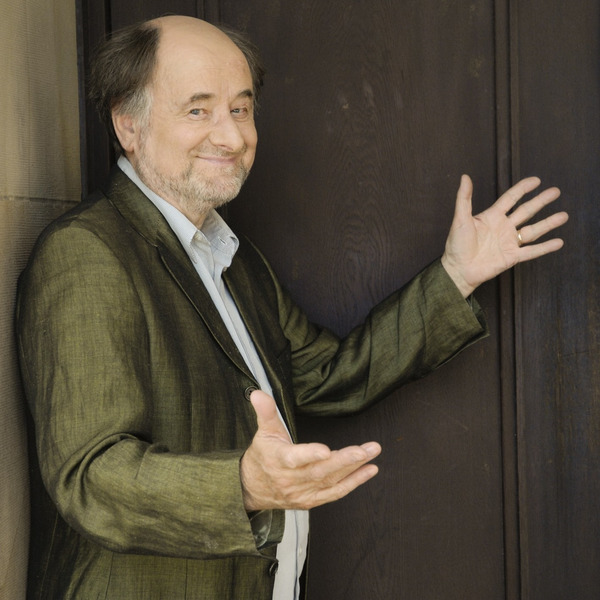 United Kingdom Handel, Purcell: Soloists, The Schütz Choir, London Philharmonic Orchestra / Sir Roger Norrington (conductor), Royal Festival Hall, London, 30.1.2019. (CSa)
United Kingdom Handel, Purcell: Soloists, The Schütz Choir, London Philharmonic Orchestra / Sir Roger Norrington (conductor), Royal Festival Hall, London, 30.1.2019. (CSa)

Handel – Water Music: Suite No.1 in F major; Suite No.2 in D major
Purcell, Dido and Aeneas
Cast:
Dido – Marie-Claude Chappuis
Belinda – Lucy Crowe
Aeneas – Benjamin Appl
Second Woman – Miriam Allan
Sorceress and Spirit – Edward Grint
First Witch – Martha McLorinan
Second Witch – Anna Harvey
Sailor – Hugo Hymas
As part of its ‘Isle of Noises’ series dedicated to landmark classics inspired by the British Isles, the Southbank Centre featured a paired down London Philharmonic Orchestra under Sir Roger Norrington in two masterpieces of the English Baroque. There are intriguing parallels. We began with a stately performance of Suites 1 and 2 of Handel’s Water Music, written around 1715 to beguile the composer’s new royal patron, the recently crowned King George I, as he progressed by royal barge down the Thames to Chelsea. After the interval, we were treated to a semi-staged small-scale production of Purcell’s greatest opera, Dido and Aeneas – which chronicles the voyage of a Trojan prince across a storm tossed Mediterranean and his unexpected encounters with the Queen of Carthage. Some say that the work’s premiere took place in 1689 at a girls’ boarding school in Chelsea, and provided its young pupils a salutary warning against the fickleness of men. Others claim that the work was performed privately at court a few years earlier and was a political allegory on the Glorious Revolution. It was arguably intended to demonstrate Purcell’s loyalty to Protestant William and Mary, recently arrived by sea to replace the exiled Catholic, King James the Second.
Whatever the truth of the political and social context of these enduring musical ‘landmarks’, the LPO’s reduced ensemble overcame the problem of the Royal Festival Hall’s size, producing an intimate and astonishingly authentic period sound. In the concert’s first half, players, including two magnificent theorbos and a harpsichord, were arranged in a welcoming semicircle prominently flanked at each end by oboes and bassoons. The only jarring anachronism was the director’s leather and chrome office chair. Here Norrington sat semi-recumbent, swivelling to gesture towards the right (or occasionally wrong) section of the orchestra, or turning 360 degrees to beam at the audience. Despite numerous moments of extraneous direction, and a few instances where the orchestra appeared to be uncoordinated, the musicians produced a beautifully textured sound, with clean vibrato free string playing, warm and rounded horns, and nimble woodwind. The majestic Overture to Handel’s Suite No.1 in F major, an Adagio followed by brisk and perfectly phrased Allegro, set the feet tapping, while the interjection of a plangent oboe in the second number Adagio, played with supreme assurance by Ian Hardwick, sent shivers down the spine. A swift and beautifully modulated account of the Bourrée followed by an expansive exchange between horns and strings in the Hornpipe were particularly memorable. The Second Suite’s Alla Hornpipe included two trumpets, sublimely played by Paul Beniston and Anne McAneney. One can readily understand how the King, hearing for the first time the final notes of the Second Suite’s boisterous Bourrée echoing across the water, demanded a repeat performance on the royal return from Chelsea.
After the interval, the players regrouped behind a dominant throne demarking Dido’s palace, and were joined by the vocally agile Schütz Choir and costumed soloists. These included mezzo-soprano Marie-Claude Chappuis, who made a regal Dido clad in alluring deep red velvet; Aeneas, resplendent in a gold braided military jacket, sung by baritone Benjamin Appl; and a caped and hooded bass-baritone Edward Grint who appeared as the evil Sorceress and Spirit. Chappuis, her lovely voice occasionally strained in the upper register, brought gravity and tenderness to Purcell’s ineffably sad arias. ‘Ah, Belinda, I am prest with torment’’ was sung with rare beauty, and Chappuis’s account of the famous lament ,’When I am laid in earth’, was deeply moving. Although Purcell did not provide Aeneas with much opportunity to shine, Appl’s princely bearing and richly lyrical voice convinced as the easily deceived Trojan hero. Soprano Lucy Crowe, with honeyed tone and impeccable control, brought Belinda to life, and Edward Grint, on top form and ably supported by two malevolent witches (Martha McLorinan and Anna Harvey) and a cackling choir, cast his spells with just the right element of pantomime evil.
Chris Sallon
For more about LPO’s ‘Isle of Noises’ click here.
